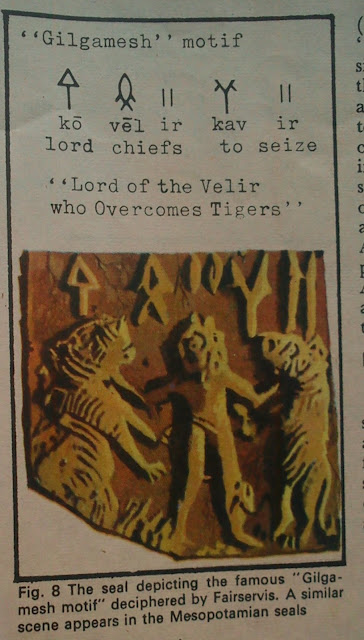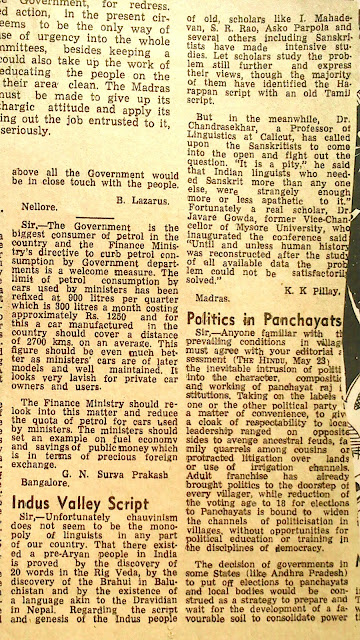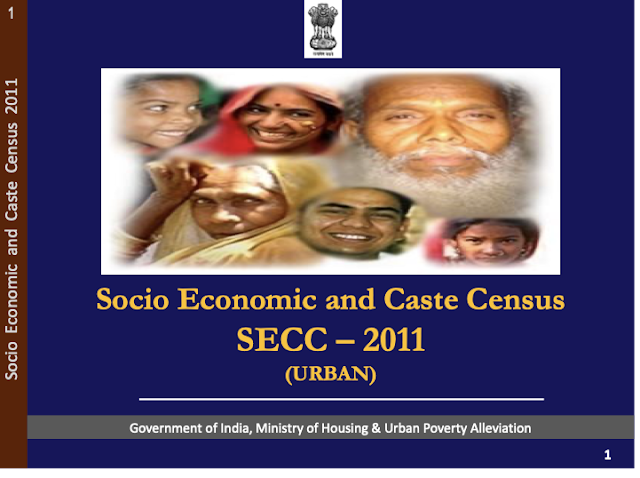Saturday, 19 September 2015
Thursday, 10 September 2015
Caste Census: Census Commissioner played mischief !

“2. Caste-wise enumeration in the census has been given up as a matter of policy from 1951 onwards. In pursuance of this policy decision, castes other than Scheduled Castes and Scheduled Tribes have not been enumerated in all the Censuses since 1951. In Census 2011 also no question on enumeration of castes other than Scheduled Castes and Scheduled Tribes has been included. As such, the first phase of Census 2011 enumeration, namely, the Houselisting and Housing Census is commencing on the 1st of April, 2010. The forms required for this phase of the Census has already been printed in many States and Instruction Manuals required for training the enumerators has also been finalized and printed. The second phase of Census 2011, namely, Population Enumeration, is due to be conducted in February 2011. The data gathered in the first phase (April to September 2010) is linked to the data to be collected in February-March 2011. Hence, enumerating castes other than Scheduled Castes and Scheduled Tribes will not be possible in that phase also. As such, it is not possible to include any question relating to the enumeration of Castes other than Scheduled Castes and Scheduled Tribes in the Census of India 2011.
3. As regards the policy decision whether castes other than the Scheduled Castes and Scheduled Tribes should be enumerated, the manner in which such enumeration should be done and by whom, the matter has been referred to the nodal Ministry, i.e. Ministry of Social Justice and Empowerment.”
Meanwhile, another case had been filed by one Mr. R. Krishnamurthy in W.P. (C) 10090 of 2010 before the High Court of Madras which had been disposed of with the following observation:
Bihar Election and Religion-wise data
Thursday, 3 September 2015
Kannahi asked whether you were a 'Saandron'?
Baaradhiyaar said that he would set fire to the entire world, if a lone individual anywhere, is denied food. "தனியொருவனுக் குணவிலையெனில் ஜகத்தினை அழித்திடுவோம்".
Now, a child on the seashore of Turkey has made the Turkish president ask the same question.
Such things happen only because, the politicians of many countries are crooked that the people of those countries are required to flee those countries and seek refuge in other countries or die. It is the duty of others in those countries, especially those who know facts, to stand up and fight against the atrocities of the rulers of their countries.
Every country can support and feed all its citizenry. But, the problems to the humanity arises only when one group turns wicked and wants to acquire power over the others and, thereby, exploit the later.
Let those 'others' perform their role ordained on them to fight for justice, so that there will be no need for anyone to leave his homeland and seek refuge in another land.
Let other nations also play active role that every nation is governed by transparent law with proper democratic set up. Otherwise, such rogue nations which do not permit real democracy for their people, would pose danger to the other nations too. The reason why the world faces the pangs of conscience now on seeing the body of the child, is just that.
There was an ordinary man who performed his role with whatever power was in his hands, to stop a convoy of military tanks. He went to the middle of the road and lifted his hand to stop them, when those tanks were going to Tiannanmen square to mow down the students of China who were fighting for liberty.
He had performed his role as a Man.
Would we?
Monday, 31 August 2015
Aurangazeb and the molestation of Rani by Kashi temple priests
“The story regarding demolition of Vishvanath temple is that while Aurangzeb was passing near Varanasi on his way to Bengal, the Hindu Rajas in his retinue requested that if the halt was made for a day, their Ranis may go to Varanasi, have a dip in the Ganges and pay their homage to Lord Vishwanath. Aurangzeb readily agreed. Army pickets were posted on the five mile route to Varanasi. The Ranis made a journey on the Palkis. They took their dip in the Ganges and went to the Vishwanath temple to pay their homage. After offering Puja all the Ranis returned except one, the Maharani of Kutch. A thorough search was made of the temple precincts but the Rani was to be found nowhere. When Aurangzeb came to know of it, he was very much enraged. He sent his senior officers to search for the Rani. Ultimately, they found that the statue of Ganesh which was fixed in the wall was a moveable one. When the statue was moved, they saw a flight of stairs that led to the basement. To their horror, they found the missing Rani dishonored and crying, deprived of all her ornaments. The basement was just beneath Lord Vishwanath’s seat. The Rajas expressed their vociferous protests. As the crime was heinous, the Rajas demanded exemplary action. Aurangzeb ordered that as the sacred precincts have been despoiled, Lord Vishvanath may be moved to some other place, the temple be razed to the ground and the Mahant be arrested and punished.”
Dr. Pattabhi Sitaramayya, in his famous prison diary, the book 'The Feathers and the Stones':
“There is a popular belief that Aurangazeb was a bigot in religion. This, however, is combated by a certain school. His bigotry is illustrated by one or two instances. The building of a mosque over the site of the original Kasi Visveswara Temple is one such. A like mosque in Mathura is another. The revival of jazia is a third but of a different order. A story is told in extenuation of the first event. In the height of his glory, Aurangazeb like any foreign king in a country, had in his entourage a number of Hindu nobles. They all set out one day to see the sacred temple of Benares. Amongst them was a Ranee of Cutch. When the party returned after visiting the Temple, the Ranee of Cutch was missing. They searched for her in and out, East, North, West and South but no trace of her was noticeable. At last, a more diligent search revealed a Tah Khana or an underground story of the temple which to all appearances had only two storys. When the passage to it was found barred, they broke open the doors and found inside the pale shadow of the Ranee bereft of her jewellery. It turned out that the Mahants were in the habit of picking out wealthy and be-jewelled pilgrims and in guiding them to see the temple, decoying them to the underground cellar and robbing them of their jewellery. What exactly would have happened to their life one did not know. Anyhow in this case, there was no time for mischief as the search was diligent and prompt. On discovering the wickedness of the priests, Aurangazeb declared that such a scene of robbery could not be the House of God and ordered it to be forthwith demolished. And the ruins were left there. But the Ranee who was thus saved insisted on a Musjid being built on the ruin and to please her, one was subsequently built. That is how a Musjid has come to exist by the side of the Kasi Visweswar temple which is no temple in the real sense of the term but a humble cottage in which the marble Siva Linga is housed. Nothing is known about the Mathura Temple. This story of the Benares Masjid was given in a rare manuscript in Lucknow which was in the possession of a respected Mulla who had read it in the Ms. and who though he promised to look it up and give the Ms. to a friend, to whom he had narrated the story, died without fulfilling his promise. The story is little known and the prejudice, we are told, against Aurangazeb persists.”































